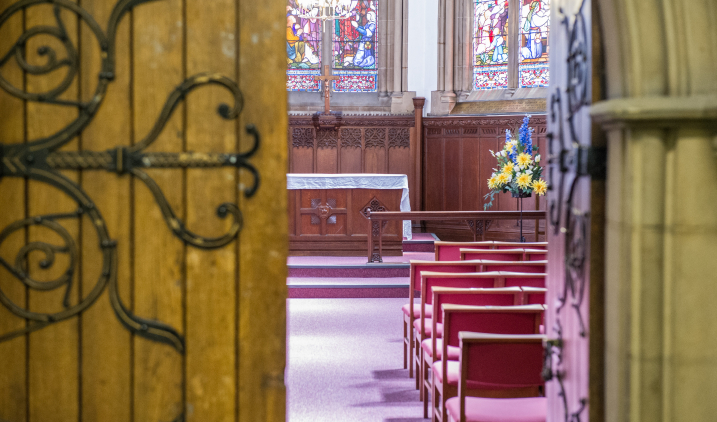Chaplain
Chaplains offer pastoral and spiritual care to all patients and their carers, friends and family as well as NHS staff.
Working life
Each chaplain is a leader in their own faith or belief system and are expected to work closely with those of other faiths and beliefs.

You're usually based in a hospital and work in any department as needed. As well as an office, you'll have a chapel or multi-faith room which staff, patients and families can visit. However, as a chaplain, you will spend a lot of time in wards and other parts of the hospital visiting people who are too ill to move from their beds.
Some chaplains travel between hospitals, clinics, hospices, etc.
Chaplains represent the faiths and belief systems of the local population who use NHS services. You will work with patients, staff and families with any faith or no faith.
Some NHS chaplains also work in their own faith outside the NHS. People who are ill or who have a family member who is ill may have spiritual or emotional needs. As a chaplain, you'll help them deal with the experiences of life and death, illness and injury in the context of a faith or belief system. You'll also support the spiritual needs of staff.
Entry requirements
Chaplains have to be accredited as leaders in a recognised faith community. They usually have a degree or a professional qualification.
Employers expect chaplains to have experience as a leader in their own faith and experience of spiritual and pastoral care. Employers may also ask for some experience in healthcare work. This could be from, for example, hospital visiting while working as a faith leader elsewhere.
Personal characteristics and skills
As a chaplain in the NHS, you'll need to be
- willing to work with other faiths and people with no faith
- able to work with staff, patients and families from all walks of life
- flexible
- caring and compassionate
- able to work as part of a team with healthcare staff
You'll also need
- excellent communication, including listening, skills
- able to see things from another person’s point of view
- good organisational skill
Training and development
Chaplains new to the NHS have training which includes
- an introduction to healthcare chaplaincy
- spirituality and chaplaincy in a multi-faith context
- working in the NHS
- working with people who are mentally ill
Chaplains may be able to study for postgraduate qualifications in, for example, healthcare chaplaincy or counselling.
Registration
A voluntary register of healthcare chaplains in the UK is maintained by the UK Board of Healthcare Chaplaincy (UKBHC).
The Professional Standards Authority accredits a number of voluntary registers against its standards including governance, setting standards for registrants, education and training, managing the register. These voluntary registers include the UKBHC register
For more information about working, training or registering as healthcare chaplain, please contact the organisations listed under the 'Further information' section below